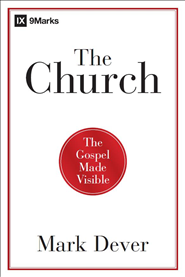Kevin DeYoung's Blog, page 134
July 16, 2012
Monday Morning Humor
July 14, 2012
Good Books on the Good Book
As I mentioned several post ago, I just finished a series of sermon on the doctrine of Scripture. The morning sermons were exegetical/theological while the evening sermons were more apologetic in nature.
Here are some of the books used during the series:
Richard Bauckam, Jesus and the Eyewitnesses
Craig Blomberg, The Historical Reliability of the Gospels
Darrell L. Bock, The Missing Gospels
D. A. Carson, Collected Writings on Scripture
John M. Frame, The Doctrine of the Word of God
Paul Helm and Carl R. Trueman, editors, The Trustworthiness of God
Timothy Paul Jones, Misquoting Truth
Michael J. Kruger, Canon Revisited
J. I. Packer, “Fundamentalism” and the Word of God
Mark D. Roberts, Can We Trust the Gospels?
J. I. Packer, Truth and Power
Daniel B. Wallace, editor, Revisiting the Corruption of the New Testament
Timothy Ward, Words of Life
John Wenham, Christ and the Bible
July 13, 2012
Why No Denomination Will Survive the Homosexuality Crisis
 There is no way, short of a miraculous and full-scale changing of hearts and minds, for North American denominations to survive the homosexuality crisis. Denominations like the PCUSA, ELCA, RCA, UMC, and Episcopal Church will continue. They won’t fold their tents and join the Southern Baptists (though wouldn’t that be interesting!). I’m not suggesting most of our old, mainline denominations will disappear. But I do not see how any of these once flourishing denominations will make it through the present crisis intact.
There is no way, short of a miraculous and full-scale changing of hearts and minds, for North American denominations to survive the homosexuality crisis. Denominations like the PCUSA, ELCA, RCA, UMC, and Episcopal Church will continue. They won’t fold their tents and join the Southern Baptists (though wouldn’t that be interesting!). I’m not suggesting most of our old, mainline denominations will disappear. But I do not see how any of these once flourishing denominations will make it through the present crisis intact.
And the sooner denominations admit this sobering reality the better.
Every denomination is different. The percentages on both sides of the issue and the official positions are not identical. But the basic contours of the problem are quite similar.
On one side you have liberals who want to see the church open its doors to the GLBT agenda. They want homosexual behavior welcomed and affirmed. They want to perform gay marriages. They want gays and lesbians to be ordained to church office. Liberals (or “progressives” or whatever-I’m trying to use neutral labels) see this as a justice issue. They believe conservatives are simply on the wrong side of history and that one day we will look at our traditional attitudes toward gays and lesbians like we look at old attitudes toward African Americans or our old attitudes toward women’s ordination. We will be embarrassed to see that we could have been so blind and bigoted for so long.
On the other side you have conservatives who want to see the church maintain purity and biblical fidelity. They want homosexuals to be loved and treated with respect. But they believe the behavior cannot be tolerated as Christian behavior. They see this as a gospel issue. They believe liberals are simply on the wrong side of the Bible and one day will be embarrassed to see how much we dishonored God by capitulating to our culture. To cave on this issue is not only to reject the plain teaching of Scripture, affirmed for two millennia of church history, but it says to people “peace, peace” where there is no peace.
In the middle are those who want both sides to get along. Maybe these third way folks are liberals willing to let conservatives keep doing their thing for awhile because they believe today’s conservatives will slowly evolve or die off. Maybe they are institutional loyalists who want to preserve the denomination at all costs. Maybe they consider homosexuality a relatively minor issue, one not worth fighting over and dividing the church over. Or maybe, as is often the case, those advocating for a third way are conservatives who don’t want to be the meanies who put up a fight.
These are the three main parties in this controversy-left, right, and center-and there is no way to make each of them happy. There is no way for mainline denominations to broker a compromise that everyone can live with.
What If
Let’s say denomination XYZ adopts a full blown official open and affirming policy. Conservatives and many middle of the roaders will leave. How can they not? The denomination, as they see it, is calling “good” what God calls “sin.”
If the XYZ tightens up a conservative stance, the liberals will be livid. The denomination, as they see it, is telling their friends, their family members, their partners, and some of them, that they are not welcome any longer. The liberals could then leave, or, more likely, continue to fight or simply ignore the denomination.
At which point, the conservatives, if they are willing and able (and they are probably neither), can engage in case after case of church discipline, until the liberals leave or have been defrocked.
Apart from discipline, however, assuming the liberals continue to push against the stated position, eventually the denomination will just let them be and allow for what they technically say they won’t allow.
Or, before that happens the conservatives will say enough is enough and leave a denomination they believe is no longer reformable and no longer demonstrates the third mark of the church.
Third ways don’t work either. It may sound like a brilliant compromise to deploy another study committee, but this merely kicks the can down the road. It says “pass” on the crisis, only to push the crisis into someone else’s lap a few years later. The denomination must fish or cut bait. It must decide what it really believes. And if it decides to never decide but just keep studying, then many folks will conclude, rightly I believe, that the denomination’s de facto position is “let’s just agree to disagree.” This will be unacceptable to conservatives.
If denomination XYZ goes one step further and allows for a “local option” or puts homosexuality in the category of “conscience” this is a decision of its own. It says that homosexuality is such a minor issue or such an ambiguous issue that we shouldn’t take a firm stance. This too will be unacceptable to many conservatives. Over time, it will be unacceptable to liberals too, who would probably view such a “compromise” (though they might not say it out loud) as training wheels meant to help the denomination ride through a difficult time until the progressive position seizes the day.
Admitting the Obvious, Proposing the Unthinkable
I understand that many good Christians love their denominations deeply. I love mine too. I don’t want to see the RCA crash and burn, or fall apart. I recognize that many Christians are loathe to consider any option that involves anything less than staying together no matter what. They want to hope against hope that everything will work out and there will be some way for everyone to get along. But it is no virtue of Christian hope to trust God for contradictions. He cannot make circles to simultaneously be squares. We are not losing confidence in our almighty God if we admit that many of our denominations face intractable problems. We can’t “unify” our way out of this mess or press people to stop having mutually exclusive convictions for the sake of our institutions, pensions, or pride. The fact is there is no third way, no fourth way, no tenth way out of this controversy that leaves all the pieces in the same places they are now. Groups will split. Bodies will rearrange. Parts will realign. Maybe not this year. Maybe not on your watch. But soon enough.
So my plea is for these denominations to make a definitive stand. Make it right, left, or center, but make one and make it clearly. Insist that member churches and pastors hold to this position. And then graciously open a big door for any pastor or church who cannot live in this theological space to exit with their dignity, their time, and their property. Because sometimes the best way to preserve unity is to admit that we don’t have it.
July 12, 2012
Book Briefs
 Joe Drape, Our Boys: A Perfect Season on the Plains with the Smith-Center Redmen (St. Martin’s Griffin 2010). This is the story of a tiny town in Kansas with a powerhouse football team who won 79 games in a row, usually by an unbelievable margin (like the time the Redmen scored 72 points in the first quarter). If you don’t know anything about small town America, read this book. If you’ve never lived in the heartland, read this book. If you love football or good journalism, read this book. A great story told very well.
Joe Drape, Our Boys: A Perfect Season on the Plains with the Smith-Center Redmen (St. Martin’s Griffin 2010). This is the story of a tiny town in Kansas with a powerhouse football team who won 79 games in a row, usually by an unbelievable margin (like the time the Redmen scored 72 points in the first quarter). If you don’t know anything about small town America, read this book. If you’ve never lived in the heartland, read this book. If you love football or good journalism, read this book. A great story told very well.
[image error]Carl Trueman, Fools Rush In Where Monkeys Fear to Tread: Taking Aim at Everyone (P&R 2012). When a publisher puts out a collection of essays like this it often feels like cobbling together a book on the cheap. Barely worth reading the fist time around, let alone the second. But Trueman’s writing is different. He knows how to tickle your funny bone and punch you in the gut, smart too. Plus this volume comes with an excellent introduction from Rodney Trotter, Theologian-in-Residence at Pastoral Centre for the Creative Arts, writing on The Feast Day of St. Olaf the Sublime. What more needs to be said? These chapters will edify, entertain, and occasionally infuriate. Enjoy.
 Mark Dever, The Church: The Gospel Made Visible (B&H Academic 2012). Everyone can benefit from Mark Dever when it comes to the theology and practice of the church. My blurb: “The church today desperately needs to think more deeply about the church. That’s why I’m incredibly thankful for Mark Dever. No one writes as passionately, as winsomely, as biblically, or as practically about the church. This book is a wonderful example of all those traits. Even though my theology is different on a few important points like baptism and congregationalism, I always learn from Mark when he talks ecclesiology. If you love the church, you’ll love this book. And if the doctrine of the church sounds terribly unimportant, then you need to read this book even more.”
Mark Dever, The Church: The Gospel Made Visible (B&H Academic 2012). Everyone can benefit from Mark Dever when it comes to the theology and practice of the church. My blurb: “The church today desperately needs to think more deeply about the church. That’s why I’m incredibly thankful for Mark Dever. No one writes as passionately, as winsomely, as biblically, or as practically about the church. This book is a wonderful example of all those traits. Even though my theology is different on a few important points like baptism and congregationalism, I always learn from Mark when he talks ecclesiology. If you love the church, you’ll love this book. And if the doctrine of the church sounds terribly unimportant, then you need to read this book even more.”
 Robert Sirico, Defending the Free Market: The Moral Case for a Free Economy (Regnery 2012). Rev. Sirico is a Catholic priest, the president of the Grand Rapids based Acton Institute, and a former radical leftists. As you can guess by the title, he’s since said goodbye to his socialist and Marxist leanings. It’s a shame than in our hyper-partisan climate many people will automatically dismiss the book as Republican propaganda. But it really isn’t. Sirico is picking up where Michael Novak left off in making a strong moral case for capitalism, free markets, and the calling of the entrepreneur. It’s a case that Christians need to consider more carefully, even if you end up disagreeing with some of Sirico’s points, especially the many pastors who bring a superficial understanding of business and economics with them into the pulpit. This would be a great book to read and discuss in a small group, a book club, or a senior seminar.
Robert Sirico, Defending the Free Market: The Moral Case for a Free Economy (Regnery 2012). Rev. Sirico is a Catholic priest, the president of the Grand Rapids based Acton Institute, and a former radical leftists. As you can guess by the title, he’s since said goodbye to his socialist and Marxist leanings. It’s a shame than in our hyper-partisan climate many people will automatically dismiss the book as Republican propaganda. But it really isn’t. Sirico is picking up where Michael Novak left off in making a strong moral case for capitalism, free markets, and the calling of the entrepreneur. It’s a case that Christians need to consider more carefully, even if you end up disagreeing with some of Sirico’s points, especially the many pastors who bring a superficial understanding of business and economics with them into the pulpit. This would be a great book to read and discuss in a small group, a book club, or a senior seminar.
July 11, 2012
C.J. Mahaney at URC
 University Reformed Church is pleased to have C.J. Mahaney fill the pulpit this Sunday morning at our 9:00 and 11:oo worship services. If you’re in the area, you are welcome to worship with us.
University Reformed Church is pleased to have C.J. Mahaney fill the pulpit this Sunday morning at our 9:00 and 11:oo worship services. If you’re in the area, you are welcome to worship with us.
Jesus’ Doctrine of Scripture
 On Sunday I finished an eight week sermon series on the doctrine of Scripture. In this last sermon I encouraged the church to have the same doctrine of Scripture that Jesus did. If he his our Lord and our Master—even if he were only a great teacher—surely we want his view of the Bible to be our view of the Bible.
On Sunday I finished an eight week sermon series on the doctrine of Scripture. In this last sermon I encouraged the church to have the same doctrine of Scripture that Jesus did. If he his our Lord and our Master—even if he were only a great teacher—surely we want his view of the Bible to be our view of the Bible.
After working through four main texts (John 10:35, Matthew 5:17-19; 12:38-42; 19:4-5) I provided a summary of Jesus’ doctrine of Scripture.
Jesus held Scripture in the highest possible esteem. He knew his Bible intimately and loved it deeply. He often spoke with language of Scripture. He easily alluded to Scripture. And in his moments of greatest trial and weakness—like being tempted by the devil or being killed on a cross—he quoted Scripture.
His mission was to fulfill Scripture, and his teaching always upheld Scripture.
He never disrespected, never disregarded, never disagreed with a single text of Scripture.
He affirmed every bit of law, prophecy, narrative, and poetry. He shuddered to think of anyone anywhere violating, ignoring, or rejecting Scripture.
Jesus believed in the inspiration of Scripture, down to the sentences, to the phrases, to the words, to the smallest letter, to the tiniest mark.
He accepted the chronology, the miracles, and the authorial ascriptions as giving the straightforward facts of history.
He believed in keeping the spirit of the law without ever minimizing the letter of the law. He affirmed the human authorship of Scripture while at the same time bearing witness to the ultimate divine authorship of the Scriptures.
He treated the Bible as a necessary word, a sufficient word, a clear word, and the final word.
It was never acceptable in his mind to contradict Scripture or stand above Scripture.
He believed the Bible was all true, all edifying, all important, and all about him. He believed absolutely that the Bible was from God and was absolutely free from error. What Scripture says God says, and what God said was recorded infallibly in Scripture.
Jesus submitted his will to the Scriptures, committed his brain to study the Scriptures, and humbled his heart to obey the Scriptures.
In summary, it is impossible to revere the Scriptures more deeply or affirm them more completely than Jesus did. The Lord Jesus, God’s Son and our Savior, believed his Bible was the word of God down to the tiniest speck and that nothing in all those specks and in all those books in his Bible could ever be broken.
For the exegetical, theological, and logical work that leads to that conclusion, you’ll have to check out the whole sermon.
July 10, 2012
Got Monday Morning Humor?
You may be surprised how hard it is to find new funny, clean material for Monday Morning Humor. Once in awhile I get unsolicited clips I can use, but by and large I go and find the clips myself.
How would you like to help me?
If you have a clip that is funny AND clean, you can email it to me at pastor@urc-msu.org. My assistant will help sort through them and then I’ll pick the five best ones to run in August (and the last Monday in July).
Please don’t be offended if yours isn’t chosen. Maybe you just aren’t that funny. Or maybe I’m not funny. Or it could be both of us.
The Power of Words and the Nature of Sin
 To be a Christian is to be a person who cares about words. We care about definitions and implications. Our aim is not to be contentious or obstreperous. Our aim is to be true and to speak in a way that strengthens the truth. We care about words because words communicate ideas and ideas have consequences. We pay attention to language because God has revealed himself through it. Words matter to God. They should matter to us.
To be a Christian is to be a person who cares about words. We care about definitions and implications. Our aim is not to be contentious or obstreperous. Our aim is to be true and to speak in a way that strengthens the truth. We care about words because words communicate ideas and ideas have consequences. We pay attention to language because God has revealed himself through it. Words matter to God. They should matter to us.
Having said all that, I’d like to suggest we think more carefully about one of our new favorite words: brokenness. I’m not on a crusade to ban the word from the evangelical lexicon. You don’t have to apologize if you say the word in front of me. It’s not a bad word. It’s just not an adequate word.
What do we communicate with the word “brokenness”? It seems to me the word is a rough synonym for “messed-up-ness.” Worship leaders ask us to confess our brokenness. Pastors tell us we all have brokenness. Sinners under conviction reveal their struggles with brokenness. Often I hear the word used with reference to sexual sin. Someone with a porn addiction may admit his sexual brokenness. Or someone speaking against homosexuality may be quick to assure his audience that we all struggle our own form of sexual brokenness. The word shows up in many delicate situations.
And yet, the word is inadequate at best and misleading at worst. On the good side, “brokenness” conveys an important truth about sin. When we develop an insatiable appetite for porn, when we long for same-sex partners, when we can’t live without people’s approval, we are not functioning the way God intended. God’s Edenic design for human flourishing did not include addictions, unnatural lusts, and fear of man. Marred by sin, none of us is the way we are supposed to be. We are all broken.
But as a metaphor for sin, “brokenness” is seriously limited. The term does not convey a strong sense of moral culpability. If anything, it suggests a helplessness in the face of external forces and circumstances. It gets nothing of the Godward direction of sin. In fact, the term “brokenness” sometimes feels like a safer, less-offensive euphemism for sin. Instead of confessing rebellion, disobedience, guilt, or moral evil, we only have to acknowledge that somethin’ ain’t right. We don’t work the way we should. We’ve been wounded before. We’ve had a hard go of it. I’m not suggesting those who use the term “brokenness” are trying to avoid their sins or the minimize the sins of others. But the language can have that effect.
In Reformed Dogmatics, Herman Bavinck examines the different Hebrew and Greek words for sin. The list of definitions is daunting: missing the mark, departure from the right way, twistedness, wrongness, deviation from the right direction, crossing a set of boundaries, breaking a covenant, apostasy, rebellion, deviant conduct, godless behavior, offense, unfaithfulness, infidelity, betrayal, disobedience, violation, lawlessness, guilt. “By far the majority of these names, Bavinck maintains, “describe sin as ‘deviation, a violation of the law.” In citing 1 John 3:4, he concludes that “Scripture consistently views sin as lawlessness” (3.129-30).
Granted, it is no violation of Scriptural truth to use non-biblical language and metaphors to describe our sin. But overtime it usually proves unwise. The biblical language for sin is stronger and more God-directed than makes us comfortable. The present Christian culture gravitates toward language that is inner-directed and therapeutic. We prefer the language of brokenness and woundedness, even though these words in the Bible tend to describe physical pain or divine punishment (Isaiah 30:26). Sin is almost never, if ever, described as personal malfunction. It is, instead, seen as an offense to God, a violation of his law, and liable to punishment. We may be broken, but that doesn’t describe the half of it. We need a Savior, not just a Handy Man.
July 9, 2012
Monday Morning Humor
July 7, 2012
When Hyenas Howl
 G.A. Smith on the appropriateness of the Bible’s shepherd imagery:
G.A. Smith on the appropriateness of the Bible’s shepherd imagery:
On some high moor, across which at night hyenas howl, when you meet him, sleepless, far-sighted, weather-beaten, armed, leaning on his staff, and looking out over his scattered sheep, every one on his heart, you understand why the shepherd of Judea sprang to the front in his people’s history; why they gave his name to their king, wand made him the symbol of Providence; why Christ took him as the type of self-sacrifice. (Quoted by Timothy Laniak in Shepherds After My Own Heart, 57)
I read this paragraph and pray for the elders, screw up my courage, and give thanks for Christ.



